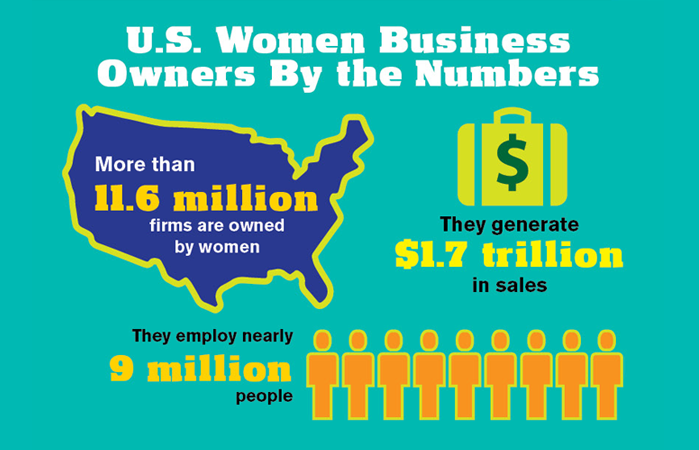As a female business owner, the inequalities in business are not lost on me. So when a day like August 26 rolls around, Women’s Equality Day, the significance of the anniversary is also not lost on me.
Women’s Equality Day celebrates the ratification of the 19th amendment giving women in the United States the right to vote. And on this kind of anniversary it’s important to think about the ways in which women still strive for equality in business, especially for those in ownership or leadership roles.
From 1997 to 2017 the number of female business owners rose 114%, per Forbes.
We are economic change makers. We drive so many parts of the country’s economy that it seems obvious that we should also be part of the driving forces behind that economy. And yet, according to Forbes Magazine, there are still three major roadblocks in the way of female entrepreneurs.
3 Major Roadblocks for Female Entrepreneurs
First-impression bias
“Are female founders treated differently from their male counterparts? Research shows that it happens frequently and carries negative consequences. For instance, the impression an entrepreneur makes during a pitch meeting can have a major impact on his or her funding outcomes. A study headed by Dana Kanze of Columbia University scoured years of data from TechCrunch Disrupt New York City. Kanze and her fellow researchers concluded that women were two times as likely to be treated negatively when asking for money. Whereas would-be investors’ questions to female leaders tended to focus on risk, their inquiries of male leaders concentrated on reward.
Though you can’t necessarily change others’ perceptions of you, you can alter your game face. For Sarah Pendley, CEO of Sarah Theresa Communications, this means switching introductory language and habits. “I’ve started to introduce myself, first and last name, and my business as I shake hands,” she explains. “This establishes authority and immediately clears up any confusion as to my role. I’ve found that conversations go further, and I’m taken more seriously as an entrepreneur.” You can also actively re-frame risk-related questions about your startup to refocus investors on the opportunities your venture presents.”
Less-than-ideal support systems
“Entrepreneurship can be a lonely journey, even when business is going well. Though male entrepreneurs tend to rely on supportive networks of friends and mentors, women are twice as likely to cite the absence of a strong support system as an obstacle to business ownership. A lack of people to consult or confide in becomes a barrier because mentored entrepreneurs are more apt to succeed. Fortunately, this problem hasn’t gone unnoticed, and a number of organizations are making efforts to connect mentors and mentees. The National Association of Women Business Owners hosts events so founders can meet, while the Center for Women & Enterprise matches participants with consultants to serve as expert guides…”
Capital-raising roadblocks
“In addition to biased first impressions, other barriers exist for female entrepreneurs trying to raise capital. The SCORE report found that female founders regularly ask for outside funding less often than males do, and when they do request cash, they usually receive less than men get. This discrepancy adds up. Kanze and her co-authors discovered that each risk-related question women were asked equated to about $3.8 million less in funding. Given these sobering statistics, is it any surprise that, according to Recode, merely 10 percent of capital flows to female-run tech businesses?”
It’s hard to be a business owner. It’s especially hard in this growing gig economy we find ourselves in, but it doesn’t have to be this way.
Celebrate Women’s Equality Day every day by supporting your fellow female business owners.
Shop at women owned businesses, attend networking events, offer support when it’s needed (and even when it isn’t.) Women will continue to thrive in the economy if we support one another and make it clear that we aren’t going anywhere.
Contact Nancy Lucchesi of Unleashed Mobile Apps with any questions you may have about the mobile app business and how it can grow your business.




